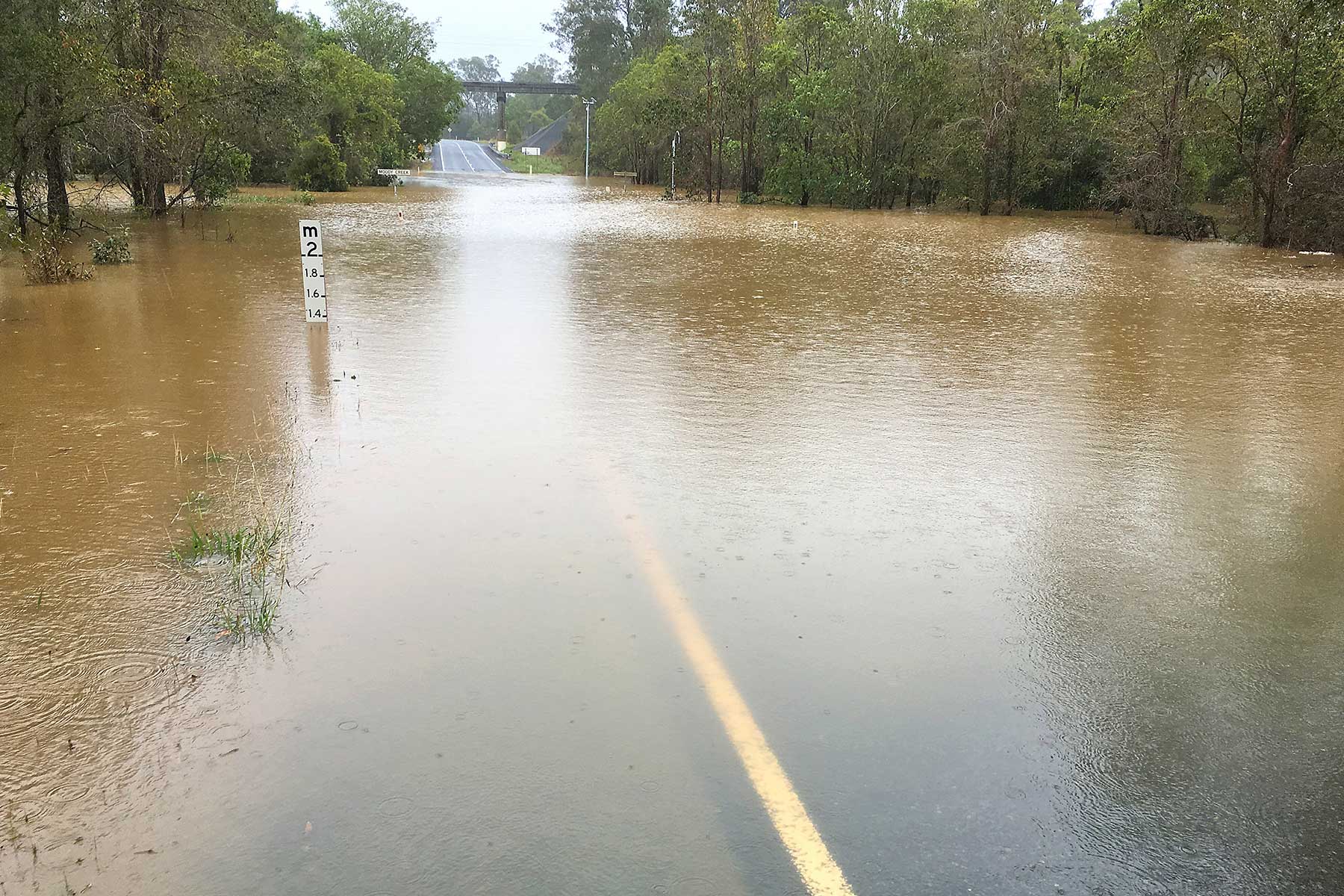Featured Image: Hypervision Creative on Shutterstock
Editor’s Note: This article contains discussion around mental health, disasters, trauma and post-traumatic stress. If you find you are experiencing distress, please discontinue reading and contact a health service, such as Lifeline at 13 11 14.
In the past decade, healthcare workers in Australia have not just been exposed to health extremes through the pandemic but also to repeated catastrophic droughts, floods, and bushfires.
Australians on the east coast have managed through the last three seasons of flooding, which have been attributed to La Niña weather patterns. With the third La Niña weather pattern having just ceased in Australia, many nurses are in recovery mode as their homes, communities and livelihoods struggle to return to how they were pre-flooding.
Those living in Victoria, New South Wales and Queensland are well aware of the effects that repeated flooding can have on the community, the healthcare service, and on themselves. However, many nurses have not seen this level of back-to-back disasters before and we need to make sure we know that nurses are recovering not just in the short-term, but also in the long-term.
How do disasters affect nurses?
In 2010, a joint proposal by the International Council of Nurses (ICN) and the World Health Organization (WHO) built support for a framework for care related to the psychological needs of those affected by disasters. While beneficial, it shined a light on how little information there was on how nurses have been affected.
Given the number of disasters that have occurred in Australia since 2010, it is valuable to look at the lived experiences of nurses. Lived experiences create realistic frameworks to prepare for future disasters and methods to counter how nurses are affected professionally, physically, and psychologically.
Psychological damage
While physical effects of long hours, disaster conditions and restrictive personal protective equipment have been well documented, less attention has been paid to the psychological effects of long-term stress on our nursing profession.
Repeat exposure to trauma by listening to first-hand accounts and displaying empathy can trigger vicarious trauma in the listener. Vicarious traumatic transference is sometimes referred to as carer’s fatigue or the cost of caring. It occurs over time and after repeated exposure leads the listener to develop psychological, emotional, and physical traumatic symptoms themselves. This is quite common among nurses and midwives.
According to researchers, 80 per cent of Australians live within 50 kilometres of the coastline and many hospitals were built on inexpensive, low lying, or flood prone land. Within the past twelve months we have seen hospitals being inundated with flood water, being left without power for days, having to be evacuated, flooded carparks, and access to roads being cut, among others.
A lack of access to facilities forces patients and ambulances to find alternative hospitals or modes of treatment. In regional, rural and remote areas of Australia, if a hospital is down due to disaster, the next one can be multiple hours away. This was the case for several regional and rural towns after flooding caused by La Niña, with some towns completely cut off.
Hospital location is not an issue that many would initially think of as a major priority. However, when climate change and adverse weather events create problems with staffing, access, and patient safety it can certainly lead to additional traumas.
From my work as a nurse, a concerning issue that influences nursing staff is the increased number of patients who present to hospital with conditions arising from the natural disasters. The impacts can range from mild short-term illnesses through to long lasting, permanent, or life-threatening conditions.
Chronic conditions such as heart disease, diabetes, and respiratory diseases can be exacerbated due to injury, infection, inhalation of foreign substances, inability to take prescribed medication, or a lack of access to regular treatment such as dialysis.
The Royal Commission into National Natural Disaster Arrangements found that those affected by the 2011 Brisbane floods were 2.3 times more likely to experience poor respiratory health and 5.3 times more likely to be generally unwell overall. The Royal Commission also found that being involved in a natural disaster can affect a person’s mental health both in the short and long-term.
Additionally, there are also indirect negative impacts that worsen a patient’s condition. These include:
- being evacuated from their residence,
- inability to access health care,
- separation from family or carers, and,
- damage to hospitals and health services.
Those that are vulnerable, such as the very young, the aged, people with disabilities, and people without permanent homes, are at much higher risk of poor health due to the disaster and its environmental and physical effects.
What to watch for post-La Niña
Repeated exposure to disaster and the associated physical and mental traumas can have a detrimental effect on nursing staff. Nurses must be able to treat people with psychological trauma but need to protect their own mental health.
To minimise risks, mental health education and disaster preparedness need to be considered as stress management is critical for those on the front line to stay well before, during, and after the event.
There are multiple physical, mental, and emotional signs and symptoms that can be indicative of trauma. These include:
- Sadness, depression, apathy
- Frustration
- Irritability
- Poor physical self-care
- Uncommon tiredness or exhaustion
- Self-isolation
- Feeling like a failure
- Using alcohol, drugs or unhealthy eating behaviours to ‘cope’
- Physical stress such as high heart rate or palpitations
- Excessive worrying or fear
- Nightmares
- Being easily startled
- Feeling that other people’s trauma is yours
Being aware of concerning symptoms, knowing how to recognise them and utilising coping techniques are initial steps that nurses and midwives can take to prevent and reduce the occurrence of traumatic stress.
The Takeaway about La Niña
We are a caring, competent and compassionate profession, but it is important to remember that the needs of those affected by disasters are not more important than our own.
It is not selfish to take the breaks that you are entitled to.
You are not alone and there is always someone else that can assist.
The effect disasters have on the healthcare service can be exacerbated by ongoing issues such as staffing shortages, lack of resources, and an increased workload.
To support nursing staff as we look to swing to a likely El Niño season, nurses and the health services in which they work should coordinate disaster response training, provide mental health first aid training, inform nurses of the signs and symptoms of mental stress, and provide ongoing support to all those involved in emergencies and disasters.
It should be acknowledged that the weather and the environment are uncertain and can be chaotic, volatile and have far-reaching consequences that can often not be controlled. It should also be noted that being involved in an emergency situation or disaster can be stressful and how you feel afterwards can also be uncertain, chaotic, or volatile. It is important to recognise this and utilise the support that can come from working together, and from being supportive of each other during times of crisis.
If you or someone you know needs support, then utilise your employee assistance programme or contact a support service such as:
- Lifeline on 13 11 14
- Beyond Blue on 1300 224 636
Louise Lommerse MACN
Louise Lommerse MACN is a registered nurse based in Central Queensland. Louise works in both private and public emergency departments and as a sessional academic. She has previously worked in rural nursing, infection control, and COVID response. Louise has an interest in disaster nursing, strengthening the role of nurses through policy development and education, and supporting undergraduate and early career nurses. Louise has undertaken studies in politics, criminology, paramedicine, disaster healthcare, and healthcare leadership.
Louise is currently the Deputy Chair of the ACN Disaster Nursing Faculty, is a Policy Fellow with the ACN Foundation and has participated in the Emerging Nurse Leader program.






